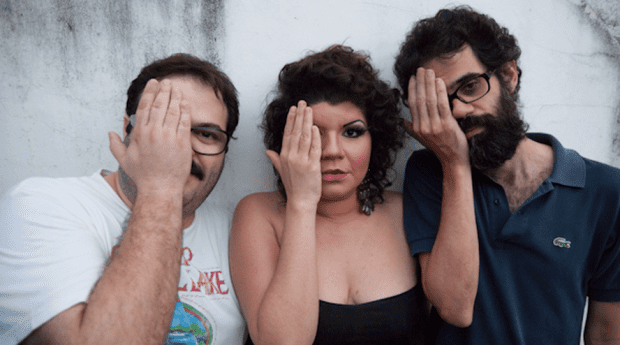Fernando has a home life much like any other kid in his neighbourhood; he’s close to his mother, helps around the house and has an accepted place within the large extended family that shares one home. And while it’s just possible that other kids his age aren’t helping their mother into her corset, spying on cute neighbour boys and polishing the penises of the nude statues adorning their homes, it is clear that this shy young fellow has a secure place within his environment.
That place is shaken when the boy who Fernando has been fixated upon suddenly returns his affections. Their sexual encounter leaves him initially happy, until he realizes the object of his affection does not share the depth of feeling Fernando is experiencing. It’s during the other boy’s birthday celebration that Fernando strikes back, making a speech that succeeds in not only driving his lover away, but also in sharing the secret with his doting but hitherto clueless mother. The final scene sees Fernando weeping into her lap, being soothed, comforted and accepted.
The miracle of this film, La Virginado del Epido, is that there were no subtitles in the preview copy I viewed (the final cut will have English subtitles). I understand no Spanish, yet was deeply moved by the story, performances and direction by Ecuadorian filmmaker Julio Baldeón. It’s easy to see why the film is one of the highlights of aluCine’s 15th annual Latin American film festival.
Baldeón’s film will be shown as part of aluCine’s Bittersweet Queer Program, an offering of LGBT films that takes place April 4 at the Art Gallery of Ontario. Originally planned as a one-off a few years back, this queer-themed night proved an instant hit with the festival’s audiences and has been a mainstay ever since. For festival organizer Sinara Rozo Perdomo, the success of the program has been particularly rewarding.
“I’m queer as well,” Perdomo says. “So I understand the stigma of being gay, lesbian or trans in Latin America. Our societies can be very closed-minded, very conservative. So for these filmmakers to come out on film and express their voice is a very big deal. It’s very brave and it’s important for us to honour them each year.”
Another of this year’s films highlights the difficulties faced by trans folk living in conservative countries. Bajo el Último Techo (Under the Last Roof) is a powerful story of the friendship between a sheltered young boy and the trans woman who moves into the flat next door. Nine-year-old Beto doesn’t care that his exotic neighbour Stephany was born male; he just likes hanging out with her, playing sword fights, dressing up and listening to music. Beto’s grandparents are horrified when they discover the truth about their neighbour, who is subsequently forced to leave the building. A scene with Beto offering a jar of coins to his friend is simply beautiful, while Stephany’s explanation that she’s being kicked out for being different, not broke, is heartbreaking.
For straightforward laughs, the festival has chosen Jessy — a documentary tribute to Brazil’s irrepressible drag scene — by filmmaker and performance artist Paula Lice. Watching local queens coach Lice on lipsyncing, movement and wardrobe is almost as fun as Lice’s reactions. This gal is completely game as she allows her godmothers to shave her eyebrows and even her hairline in the quest for drag queen stardom.
“There are so many funny and touching moments in these films,” Perdomo says. “We program 100 films every year, but Bittersweet is definitely a special experience for both the audiences and for me. I always say I have three children: my 10 and 12 year olds, and then aluCine.”
The aluCine Festival runs Thurs, Apr 2 to Sun, Apr 5
The Bittersweet Queer Program shows Sat, Apr 4, 6pm to 7pm at Jackman Hall, Art Gallery of Ontario, 317 Dundas St. W, Toronto
alucinefestival.com for locations and details.

 Why you can trust Xtra
Why you can trust Xtra